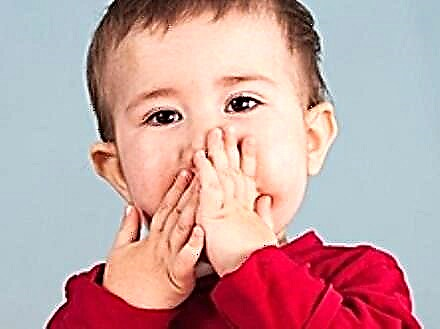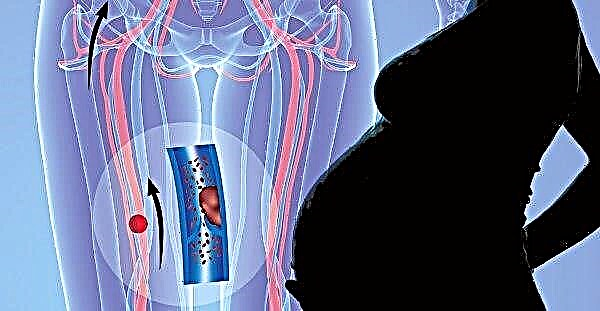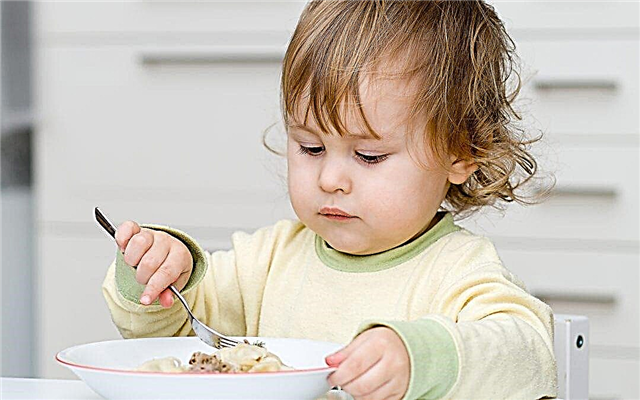
The first independent movements of the baby delight the whole family. Unfortunately, rarely does a baby fall when trying to grow up. The greatest horror grips parents when the baby falls from a height: from the changing table, from the crib, from the sofa to the floor. At the same time, he screams so loudly that the rich imagination of moms and dads immediately paints the darkest pictures: trauma, concussion, fracture ...

About falls
The famous pediatrician Yevgeny Komarovsky tells whether it is worth fearing such falls, what consequences they can have and how to act for parents if the child flew to the floor from somewhere.
According to Komarovsky, there are usually no serious consequences. If anything is injured, then only the psyche of parents, grandmothers, grandfathers. Adults are ready to grab a confused screaming toddler and rush right now for an x-ray, an ultrasound scan, a traumatologist, a surgeon and wherever.

The prudent nature has taken great care to ensure that the consequences of a fall are minimal for the child. For this purpose, the baby has a “fontanelle” on the head, and the amount of cerebrospinal fluid in babies is incredibly large, and this is not without reason: it performs shock-absorbing functions, significantly softening a fall from any height. Of course, we are not talking about a flight from the third floor, but there are enough protective functions and mechanisms of the child's body for the height of a crib or changing table.

This fact should reassure parents somewhat. However, caution should be exercised. Evgeny Komarovsky advises mums and dads of "flyers" to carefully watch the child for the first day after the fall. If possible, the baby should be provided with physical peace: cancel massage sessions, give up active games, outdoor entertainment.
Dr. Komarovsky will talk about the symptoms that speak of a serious injury in the next video.
The fallen child screams heart-rendingly not from pain, as parents think, but from fright. A sharp change in the position of the body in space causes a real panic in the baby. If at the same time he feels a strong reciprocal panic, which his parents will demonstrate (and he will feel it without fail, you can be sure), his fear will only intensify.

The main thing that parents should do if a child falls from a height is to remain calm (as much as possible in such a situation). The baby must be carefully lifted, examined for damage and reassured. If after half an hour the little one began to smile again and behave as if nothing had happened, there is no reason for an urgent trip to an appointment with a traumatologist or surgeon. The likelihood of damage to internal organs is minimal.

Observations of the child on the next day should be based on fixing any (even minor) changes in his behavior. Naturally, the most dangerous consequences of a failed landing are various head injuries. Parents should be aware of the symptoms that indicate such damage:
- Impaired consciousness. It does not matter how many months or years the child is (a child fell out of bed at 6 months or a newborn was dropped). Even the most short-term loss of consciousness is a reason to immediately go to see a doctor or call an ambulance.
- Changes in the pace or clarity of speech. If the child is already speaking, even if only in syllables, with close observation, the parents are able to notice that he began to “communicate” less often, more often, louder or quieter, his speech became illegible, signs of stuttering appeared, and so on. In this case, traumatic brain injury can be suspected, and this condition requires compulsory medical attention.

- Drowsiness. If a child starts sleeping longer after falling, he constantly lies down and falls asleep quickly, even if he has already "exhausted" the daily supply of sleep for a long time, this is a reason to take him to the hospital.
- Inappropriate behavior. This is the hardest part. Sometimes it is quite difficult for parents to explain to the doctor what exactly the inadequacy in the baby's behavior is (especially if it is a newborn or 5-month-old baby). However, they will surely notice the oddities, the mother's heart will "tell". Do not be shy and believe that the doctor will not understand you, immediately contact the medical institution.

- Headache. This symptom can be recorded if the child is already at the age when he can tell or show his parents that he has a headache. It is not the headache itself that should alert, but its duration. If the fall has passed without consequences, it will pass quickly. With a head injury, quite severe pain will persist both an hour and an hour and a half after the fall. Babies who cannot speak are more likely to express their feelings through crying. It will not be harsh or shrill. The nature of crying will be aching, constant, with short interruptions (for a few minutes, no more).
- Convulsions. This symptom is clear to everyone, as it is also clear that there is no need to wait for the second attack. After the first convulsions, you should call an ambulance.

- Nausea and vomiting. If the child has more than one vomiting attack, it may indicate a concussion. The toddler needs qualified medical care.
- Dysfunction of the vestibular apparatus. If a child who is quite confidently standing on her legs in the arena at 10 months old has instability, imbalance after a fall, you should consult a doctor. This also includes symptoms such as poor coordination, inability to move an arm or leg.

- Pupil size. If the pupils are the same, there is no reason to worry. If one is larger than the other, then it is one of the easiest signs of head injury to diagnose.
- Circles under the eyes... If, shortly after the fall, dark blue circles appear under the eyes or in the behind the ear region, this is a very alarming symptom.

- Discharge from the ears and nose. Alert should not only bloody and bloody discharge, but also completely transparent.
- Feelings and perception. If a child, after a fall, has even slightly decreased vision, deteriorated hearing, lost sense of smell, this is a good reason to seek medical help.

Why do children fall on their heads most often
This is due to the physiological characteristics of babies. A person from birth until about five years of age has a rather heavy head (when compared with the general proportions of the body). Imbalance leads precisely to a fall on the heaviest part of the body, on the head. It is most dangerous if the child is hit hard with the back of the head or temporal region.
Evgeny Komarovsky says that falling on his head usually does not lead to injury. The bones of a child's skull differ from adults in that they are soft and flexible. When landing on the head, they move apart, cushion and return to their original state after a few minutes.

What to do if there is an injury
If the child has one or more of the above symptoms, he should be taken to the hospital as soon as possible. In a hospital, the baby will be given an ultrasound scan of the brain, tomography (computer or magnetic resonance imaging), and, if necessary, an encephalogram. If damage is detected, hospitalization will be indicated, under the constant supervision of doctors, the child will undergo a course of treatment with the use of medicines and special physiotherapy. If everything is done in a timely manner, the consequences for health will be minimal (or the injury will not affect the further development of the baby at all).

Komarovsky recommends that parents of babies, just in case, study the procedure for actions that need to be taken while doctors are on call. First aid should be as follows:
- Bruise, bump, swelling. Something cool should be applied to this place, but not a piece of frozen meat from the freezer, so as not to cause hypothermia of the brain.
- Peace. The child does not need to be carried back and forth around the apartment and at the same time swing intensively. It is better for the baby to be in a horizontal position on its side. No pillows! Komarovsky emphasizes that the head and spine should be at the same level.
- It is better not to let the baby sleep before the arrival of the ambulance.
- In case of vomiting, do not let the child lie on his back, so that he does not choke on the vomit.
- Do not give any medication.

Prevention
The best head injury prevention is parental control. The baby is not as helpless as some parents think. Already at 4 months, he is able to roll over and roll off the couch on which he was left, or from the changing table, while his mother turned away to take a clean diaper or pants.

That is why Evgeny Komarovsky advises to swaddle and change the child's clothes either on the sofa or on a table with high sides around the perimeter. It is better to lay a soft rug next to the floor. He will soften the fall, if any.

In no case should the baby be left alone on the sofa or table, even if the mother needs to leave the room for only a few minutes. No matter how indignant the crumb may be, it is still better to put it in the crib during the absence.

Children receive the most dangerous injuries not when they fall at home, but on the street. So that there is no "flight" out of the stroller, you need to carefully consider the first attempts of the baby to sit down. As soon as he begins to express such a desire, it is better to start using a stroller with straps that fix the child.
Older children who already know how to walk, when playing on the playground, should always be accompanied by an adult who leads the child by the hand, helping him to climb onto the swing and get off it.




